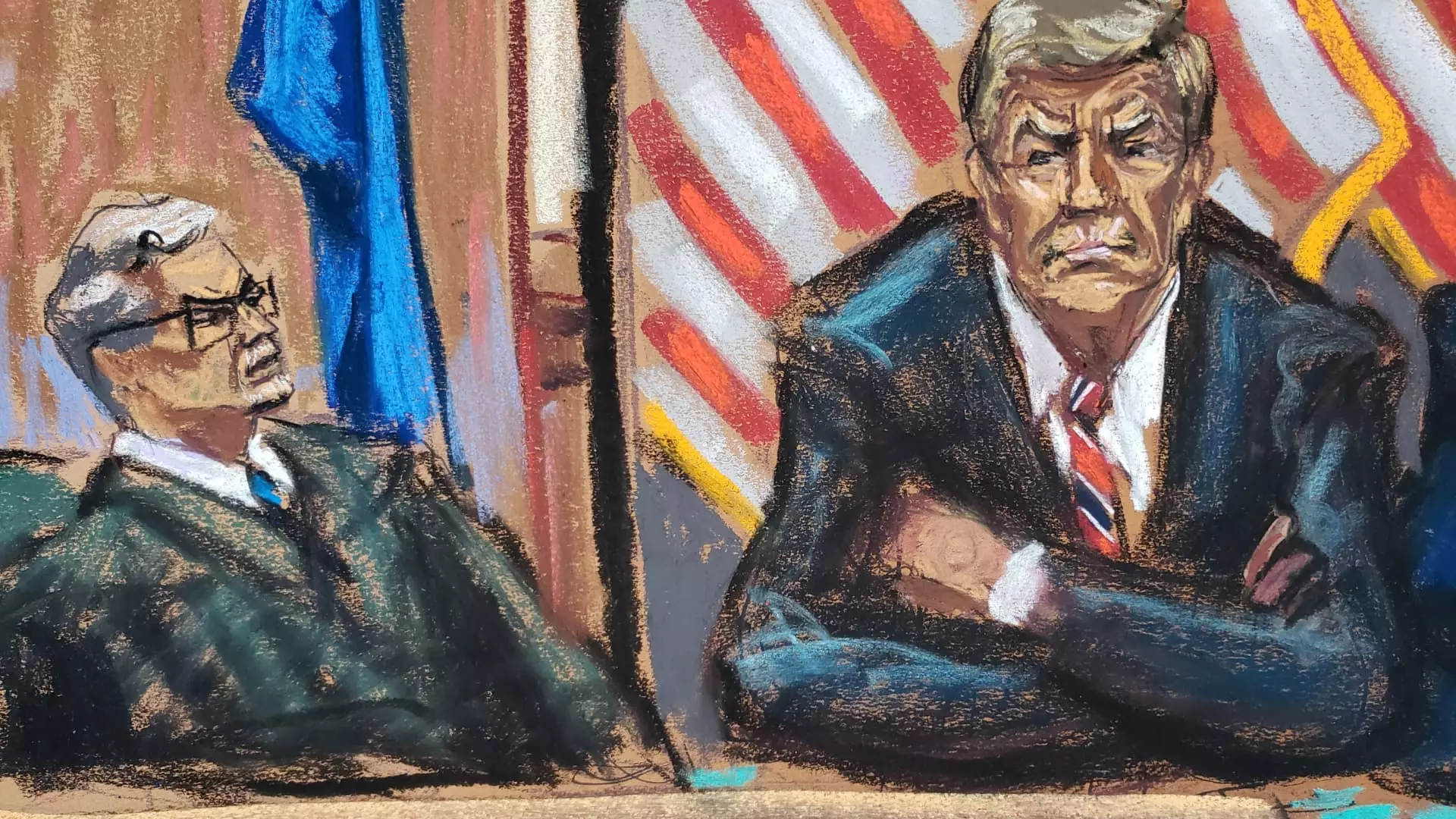In a striking twist in Donald Trump’s ongoing legal battles, a New York judge has postponed a crucial ruling regarding the future of a criminal case that could significantly impact the former president’s political career. On a recent Tuesday, Judge Juan Merchan announced a one-week delay on deciding whether to overturn jury verdicts in Trump’s hush money case, a pivotal case that has garnered national attention. This delay comes in response to a request from the Manhattan district attorney’s office, which sought time to evaluate how Trump’s recent electoral success may influence legal proceedings against him.
The implications of this case extend far beyond the courtroom. With Trump winning the presidential election against Vice President Kamala Harris just days before this decision, the dynamics of the case have shifted dramatically. Trump’s legal team argues that the outcomes of the election necessitate a reevaluation of the charges of falsifying business records linked to a payment made to adult film actress Stormy Daniels during the 2016 campaign. This complex scenario reflects not only the intersection of law and politics but also the unprecedented nature of a sitting president navigating criminal allegations.
Central to the case is the allegation that Trump’s former lawyer, Michael Cohen, made a substantial payment to Daniels to silence potentially damaging revelations just before the election. The gravity of the accusations cannot be understated: this situation underlines questions of legality, ethics, and the very fabric of electoral integrity. Trump’s attorneys previously sought to dismiss the case altogether, arguing that the U.S. Supreme Court’s grant of “presumptive immunity” to former presidents for actions taken while in office should invalidate the hush money verdict.
However, New York District Attorney Alvin Bragg countered this claim, maintaining that the Supreme Court ruling does not apply to the specific circumstances of Trump’s case. This legal tug of war illuminates the contentious relationship between legal duties and presidential immunity, a hallmark of the current political climate. With the judge deciding to push the timeline back to November 19 for a resolution on the case dismissal, the legal community and political observers are left speculating about what this means for Trump’s ability to govern—and how the court will balance the integrity of the justice system with the unique position of an elected official.
Defense attorney Emil Bove’s assertion that proceeding with the case could create “unconstitutional impediments” to Trump’s governance raises fundamental questions about the acceptable limits of legal processes in a political context. The delicate balancing act that courts must perform in ensuring justice while considering the broader implications for society and governance is pivotal in today’s climate. The notion that a criminal case could thwart the actions of a sitting president is unprecedented and fraught with complexities.
The DA’s office, acknowledging the strange and historic moment, consented to a stay of proceedings to allow all parties a chance to reassess their positions in light of the recent election results. As political discourse continues to evolve, the fallout from this case is likely to resonate well beyond the courtroom, potentially shaping public perception and even the future landscape of American politics. In this charged atmosphere, it is clear that the upcoming weeks will be critical in determining not only the fate of Donald Trump’s legal challenges but also the broader intersections of law, politics, and public trust in the American system.


Leave a Reply